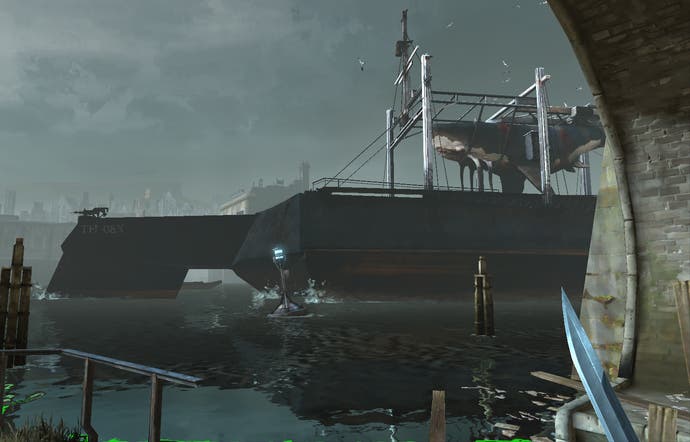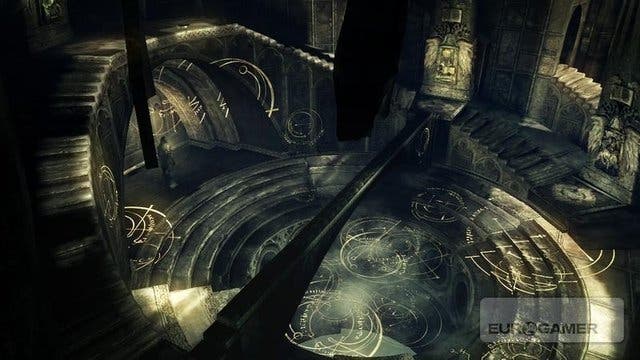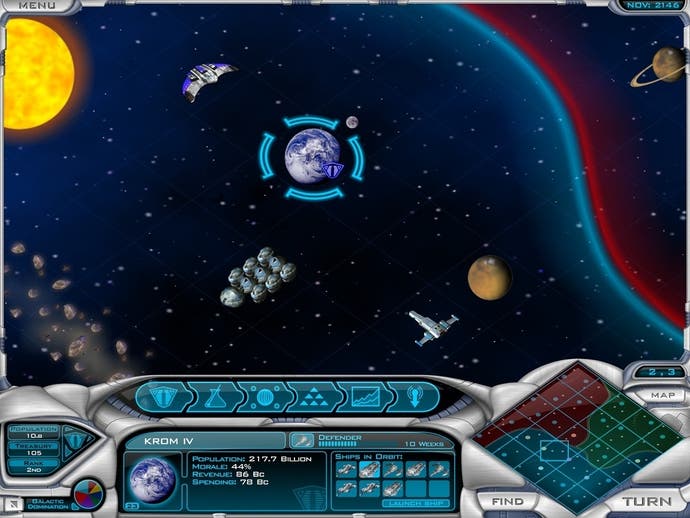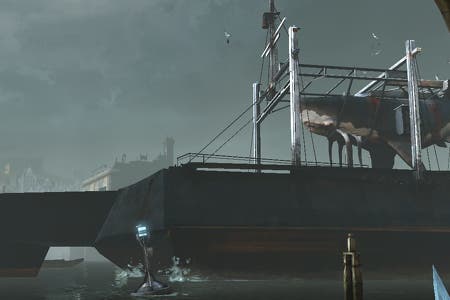Lost Humanity 6: Killing Pirates
What if you can't afford a game?
What if you can't afford a game?
What if a game that is being aggressively marketed to you and your friends is something that you can't actually afford to buy? What if you're a student with a s****y job? Or what if that thirty or forty quid has to feed your family for a fortnight? What then? Do you just do without? Do you sit outside in the cold while everyone shares in the latest "cultural event"?
What do you do?
Whatever it is you do, it doesn't make you a pirate.
I would imagine that most British gamers my age would be considered "software pirates". We might not do it now, but we almost certainly will have done it in the past. When I had a Commodore 64, most of my games were compilations on c-60 tapes, and we swapped those things in playgrounds. At birthdays and Christmas, sure, we'd get some actual games bought for us. And we'd save up our pocket money for Mastertronic stuff. But every other day? When we were skinto? We taped and copied and shared those games. We shared them and loved them. Software companies closed down and many of them blamed us.

The Amiga was the same. We all had our own X-Copy disks, right? Watching those little 0s fill up, praying for no errors, as some brilliant game slid illegally onto our blank disk. Trips down to the local market to choose games from a big file folder, which would then be copied for us on the spot. Not a penny to the magicians who made those games. It was just what we did. We wanted games. We wanted all the games, and only Elton John could possibly afford to buy all the games, so we did what we had to do. We did what came naturally to us as human beings. And software companies closed down, with many of them blaming us.
Then the internet happened, and capitalism shuddered. If you wanted something for free you could have it. All the market stall copy-boys were finished in an instant. You could just pull stuff directly into your home, endlessly, privately, forever. It was as easy as breathing. In. Out. In. Out. Games in. No money out. Software companies kept closing down, and they kept blaming us. They kept blaming piracy.
"Piracy" is a stupid term. It has to go. That's the first thing.
"Piracy suggests villainy of some kind, when in truth all that punters are doing when taking something for free is 'taking something for free'."
Piracy suggests villainy of some kind, when in truth all that punters are doing when taking something for free is "taking something for free". It's like lifting a leaflet, or taking one of those samples of cheese from Tesco's deli counter. It's what people do. There's no malice in it.
1. HERE IS A THING I LIKE
2. DO I WANT IT? (YES)
3. DO I HAVE TO PAY FOR IT? (NO)
4. DO I WANT TO PAY FOR IT? (YES/NO)
5. YES: PAY FOR IT
6. NO: JUST TAKE IT FOR FREE
END
That's it in a nutshell. And here's the fundamental problem with the whole piracy issue. Publishers are focusing on dismantling Stage 6 of that process when they should be analysing decisions made at Stage 4.

Progress leaves us all breathless. Stuff moves so fast, and we all pretend we're keeping the pace when in truth we can't even find our trainers. As we try to catch up, we wrestle with outdated structures and try to wrap them around situations that are completely new. We take the wrong of the old and try to make the right of the new slide inside it.
The first thing we have to do, right now, is accept that we are all pirates. At some point we've all done it, and many of us are doing it now, so the term has no real meaning. We're talking about people here, and people only pay for stuff if they love it, love the people who made it, or it's so cheap that they don't even question it. A corporate acceptance of normal human behaviour would mean the end of these ridiculous DRM situations, where people who have legitimately paid for things get hassle they wouldn't have to deal with if they'd just taken the stuff for free. (And by the way, we can't stop fighting DRM because we're a bit fatigued by the subject. The fight must go to the final bell.) Let's just accept that whatever a thing is, only some people will pay for it, and only if they care enough to do so. This mythical creature we call the "Pirate" does not exist, except in a form I'll talk about later.
"The next stage, and the most important stage, is to accept that the system as we've known it is a farce."
The next stage, and the most important stage, is to accept that the system as we've known it is a farce. The prices we've been forced to pay over the short lifespan of the games industry have been a bad joke. They have been a trick. In the PS2 era, with sales booming, the standard price for a game was 40 quid. No matter how good the game was, or how large the development team was, 40 pounds was the price of a PS2 game. This was the arbitrary value the industry price-fixers plucked out of the air for those products. We sucked it up, despite knowing we were being cheated, because we love games. (We fell in love with games by playing copied tapes in the 80s.) What about our valuations of stuff? Doesn't that matter?
DEMON'S SOULS - £100 (Groundbreaking, deep, beautiful, progressive)
SKYRIM - £4 (Buggy, unfinished, unnecessary retread of past superior works)
The publishers who make these bloated AAA BLOCKBUSTER games that get booted down our throats at every fake awards show argue that they need to charge a premium price to keep delivering a premium product. But who says we need a "premium product", whatever that is? Did we even ask for that? Is that what we want from games? Massive marketing spend and homogenisation?
"But these giant companies would have to close down. People will lose their jobs!" And yes, that's horrible. No one ever wants to see people lose their jobs. But if these companies can only stay in existence by charging their customers extortionate prices for bland, safe product, should they even be there in the first place? Are they not living on a lie? And the creative people at these companies, people who currently spend every day texturing guns and other guns and extra downloadable guns, might they not do greater work on their own? In small groups? Forming daring little companies? Working to progress gaming and earning goodwill from people who will pay and pay again to see their work?

If acceptance of reality means that the games industry loses its giant studios, and it all shrinks back to small teams making smaller games and charging less, then so be it. It's said that the recent Kingdoms of Amalur had to sell three million copies to just break even. That's ridiculous. That's a sign of a broken, dated system starting to shut down.
Let me tell you what a pirate actually is. It's just a word. And that word is a weapon. Corporations and governments will use that word to try to destroy our freedom and halt progress. They'll use it to try to turn us against each other. When big business talks about a pirate, it's creating a bogeyman that will be used to justify the continuation of its worst practices. We have to reject it, every time. There are no pirates. There's only me and you.
A story now. In the recent Steam Summer Sale, Galactic Civilizations 2 became one of the flash deals. I think it dropped to about four quid. Despite owning the game on disc, I bought it again just for convenience's sake. Then I bought another copy for my girlfriend. Then I bought another copy for my friend. Why? Because it's a wonderful game that never ever treated its players like criminals. No DRM bull. No restrictions. A reasonable price. I thought it deserved my money, multiple times.
The past hundred years' brutal commodification of stuff, this vile transformation of everything into a protected product of inflated value, has been steamrollered by the advance and democratisation of technology. Progress has led us to a place where the only meaningful currency left is goodwill.
Goodwill.
Creators who want to survive better start earning it.

